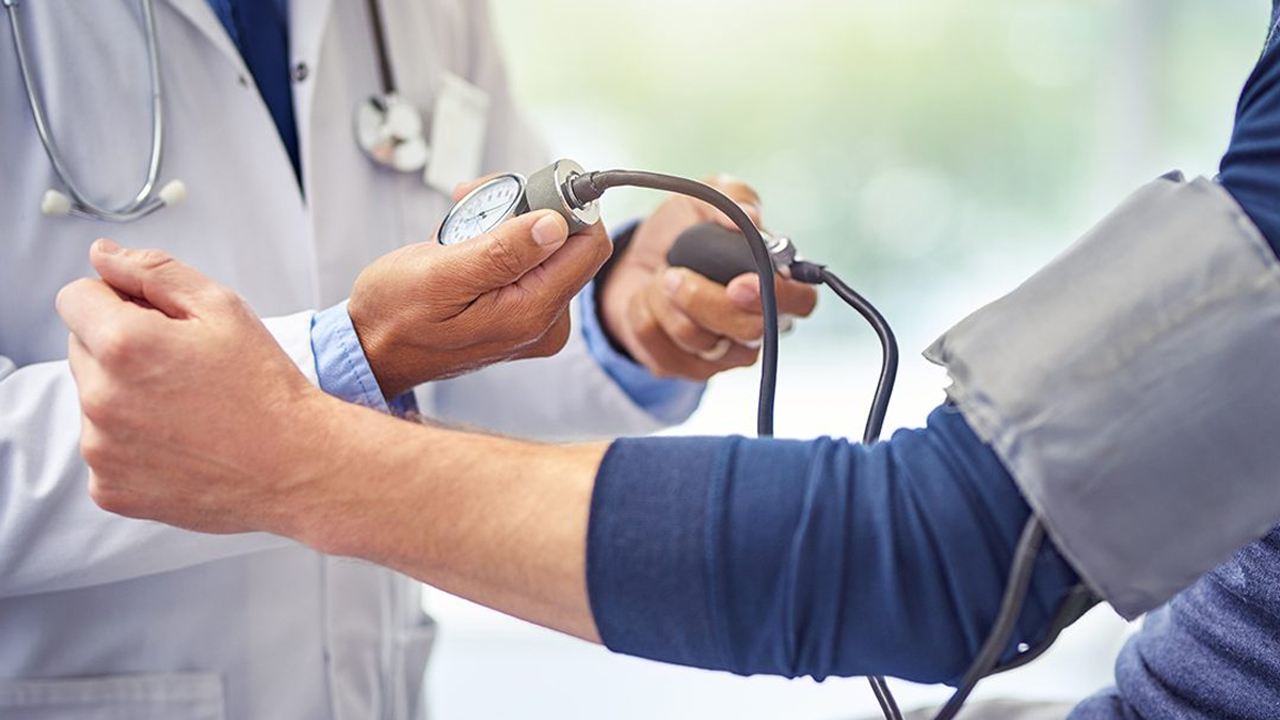Dr. Rishit Harbada is a consultant Nephrologist (hypertension and kidney specialist). He has completed his MBBS from VIMS, Ahmednagar, and has been a gold medalist throughout his MBBS. He accomplished his MD in Medicine from Bombay Hospital Institute of Medical Sciences, Mumbai. He then joined Jaslok Hospital and Research Centre for DNB NEPHROLOGY which he cleared with flying colors. He holds the membership in the prestigious Royal College of physicians, London. He is currently a consultant Nephrologist at SRV hospital, Goregaon, Bses hospital, Andheri, and many others.
Hypertension is genetic or not
Dr. Rishit Harbada states, “Hypertension is a common problem. One in 3 people gets affected by hypertension. 90 % of hypertension is primary hypertension without any unknown cause. The other 10 % may be due to kidney problems or hormonal issues. 90 % of hypertension which is essential hypertension is polygenetic. There is no particular gene to causes hypertension. Multiple genes are responsible for it. There may be a genetic predisposition for hypertension. There can be various causes of hypertension like-
- Smoking
- Obesity
- Increased BMI
- Alcohol
- More salt
- Alcohol
Hypertension is the combination of both genetics and environmental factors which play a role in hypertension.”
Symptoms of hypertension
Dr. Rishit Harbada informs, ”There are no visible symptoms and signs of blood pressure. Patients usually go for regular health check-ups and find out about blood pressure. The symptoms of hypertension are -
- Headache
- Night sweats
- Chest pain
- Eye floaters
- Stroke
There are no symptoms of hypertension. Hypertension may increase at times and affect the brain and heart which may show symptoms. Do not wait for hypertension signs and symptoms and get a regular check-up done.”
Hypertension is called a silent killer
Dr. Rishit Harbada informs, “Hypertension is a silent killer as it does not have any symptoms. It is a deadly killer and does not tell the main problem. Hypertension affects the arteries causing more pressure and this increases the blood flow to the heart and other organs affecting the -
- Brain causing stroke or paralysis
- Heart causing a heart attack, failure, and lung disease
- Eyes causing bleeding eyes and loss of vision
- Kidney causing kidney failure
- Leg vessels cause peripheral vessel disease
Around 46% of people do not know that they have any hypertension and they suddenly fall into this category when they come up with complications.
Diagnosis of hypertension
Dr. Rishit Harbada says,” It is easily diagnosed and checked by the doctor with the blood pressure machine. The blood pressure apparatus is called a sphygmomanometer. You should be relaxed and sit for 5 - 10 mins once you visit the doctor. The doctor checks blood pressure in both arms and checks regularly. There might be some anxiety when you go to the doctor and this may increase the blood pressure. It is advisable to check blood pressure recordings on two to three different occasions. It is directly not dependent on one reading. Multiple readings are required to check the blood pressure. It is advisable to check BP at home when you are more relaxed. There is 24 hours ambulatory blood pressure machine and this checks the machine for the entire 24 hours as you do your daily routine. This will clearly indicate whether the person is having hypertension or not. This is how blood pressure is diagnosed. Other organs can also be checked for changes in hypertension -
- Eyes - especially the retina
- Heart - ECG, 2D Echo
- Kidney - urine routine
As per guidelines, -
- You should check your blood pressure once a year if above 40
- If you are above 35 and have diabetes or obesity, you should check your blood pressure twice a year
- Patients between 18 - and 35 years should check their blood pressure once every 2 years.”
Precautionary measures for hypertension
Dr Rishit Harbada informs, “ The precautionary measures for hypertension are-
- Do not take stress - stress management
- Weight reduction
- Lifestyle modification- 30 mins walking
- Avoid excessive salt
- Avoid alcohol and smoking
- Avoid packaged foods
- Control diabetes
- Control cholesterol
- Take medicines and lifestyle precautions.”
Edited By: Dr.Rati Parwani
Contributed By: Dr. Rishit Harbada, Consultant Nephrologist, SRV hospital

 Dr. Rishit Harbada talks about the causes of hypertension and how to diagnose it at an early stage with help of your doctor. He also informs about the complications of hypertension and says that HTN should be monitored regularly. He also informs about the precautionary measures which can help in maintaining controlled blood pressure.
Dr. Rishit Harbada talks about the causes of hypertension and how to diagnose it at an early stage with help of your doctor. He also informs about the complications of hypertension and says that HTN should be monitored regularly. He also informs about the precautionary measures which can help in maintaining controlled blood pressure. 









.jpeg)
















.jpg)



